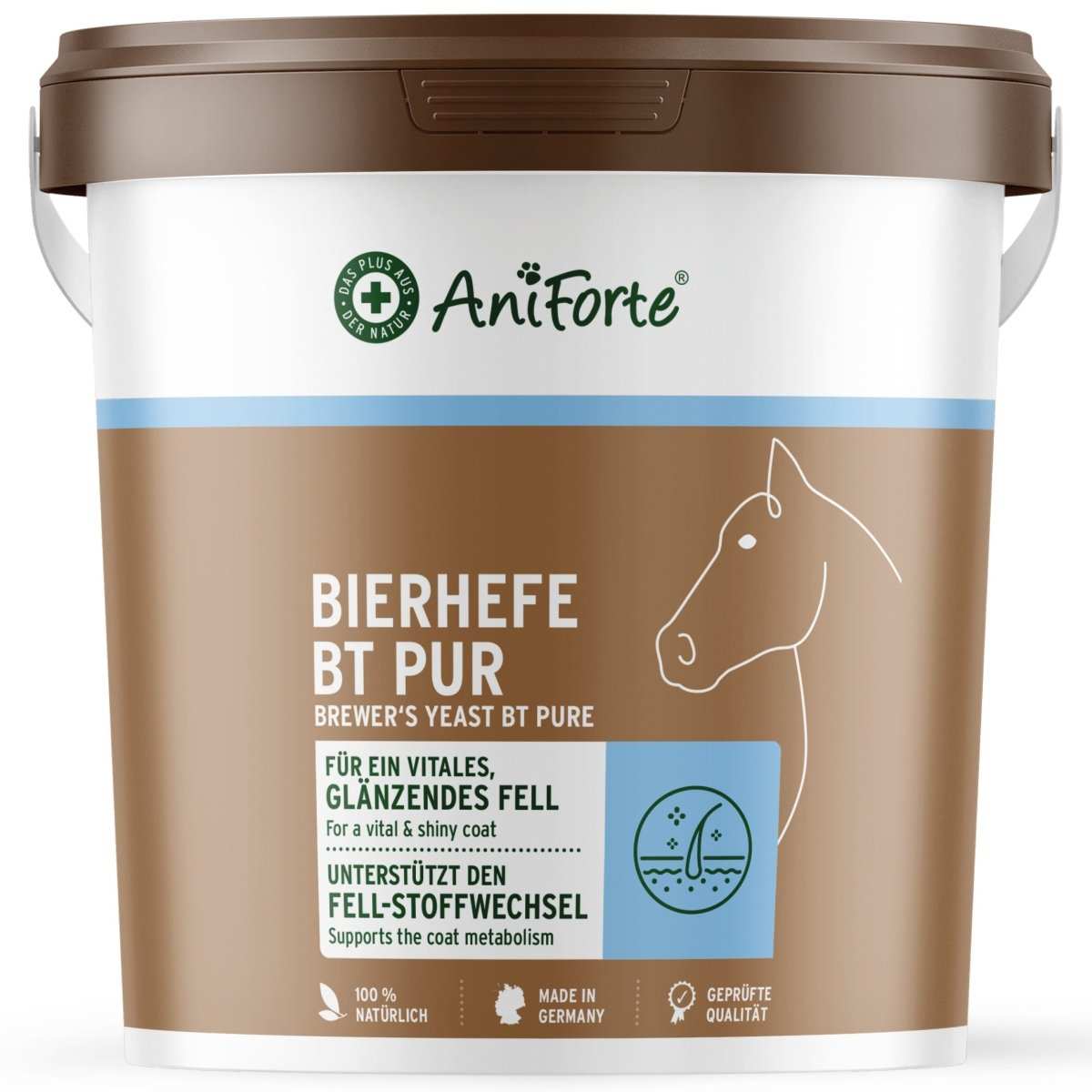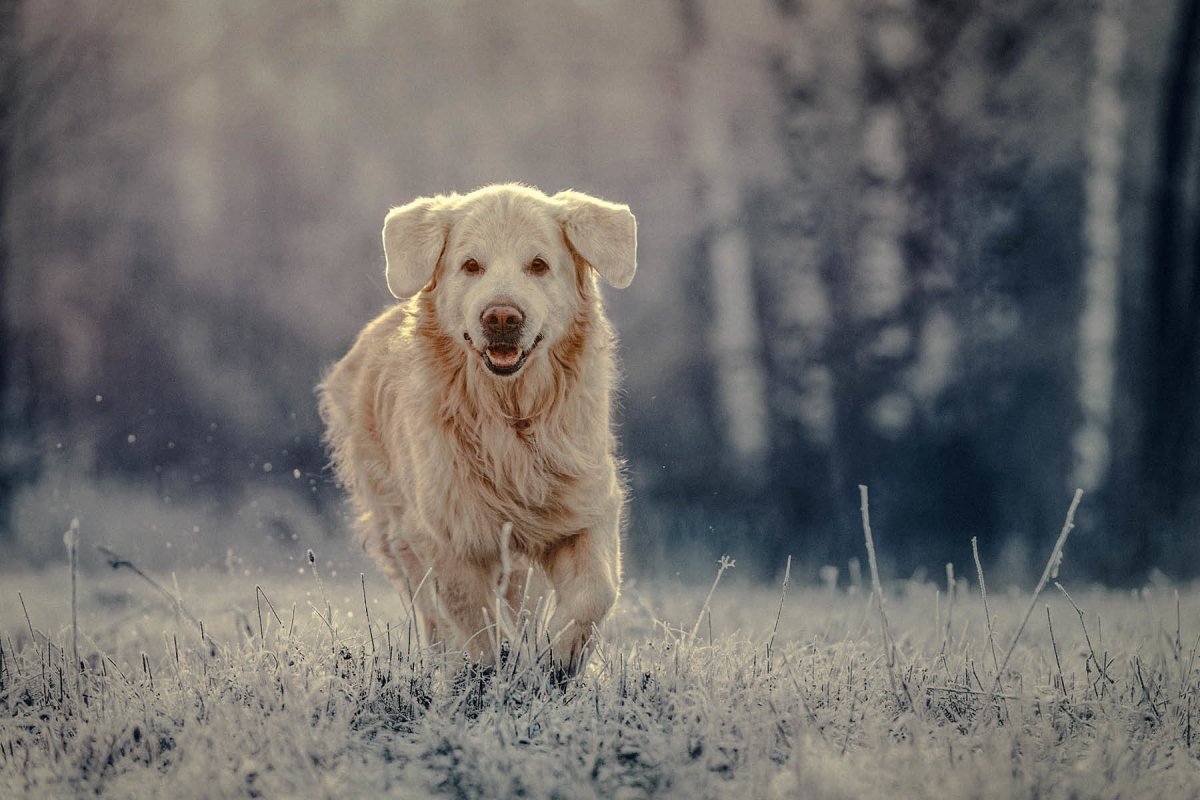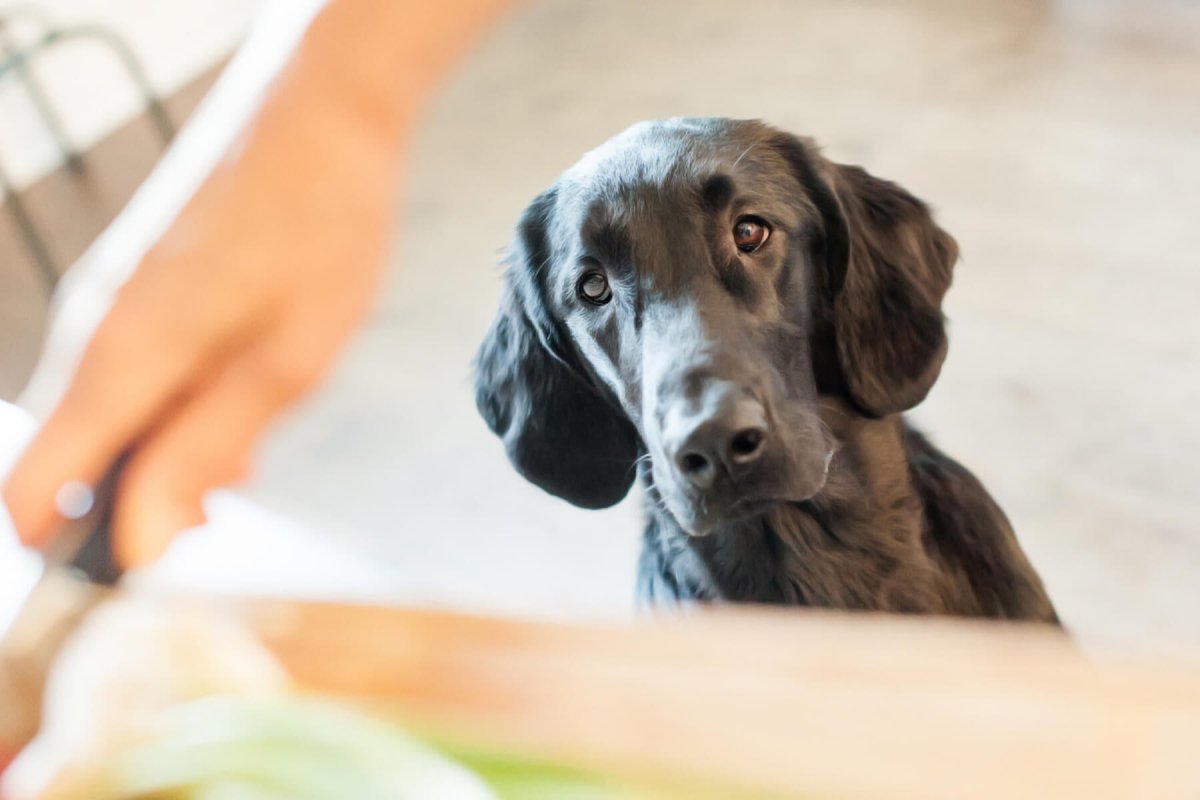Does your dog have diarrhea? This is not as rare as you might think. It can be just a temporary gastrointestinal upset or have more serious causes. In most cases, diarrhea in our four-legged friends subsides after a few days and leaves no lasting damage. Above all, vital and healthy dogs struggle less with diarrhea and gastrointestinal problems than their more sensitive counterparts. In this article, we tell you the causes of diarrhea in dogs and when you need to go to the vet if your dog has diarrhea.
Dog diarrhoea - correctly identifying the causes
First of all: Diarrhea is a symptom, not a disease. This means that it is a sign of illness and has a cause. But what causes diarrhea? Dogs can react to excitement and unfamiliar situations with diarrhea. However, intolerances to food ingredients can also cause diarrhea in dogs. However, the exact factors cannot always be determined.
The following factors are the most common causes of diarrhea:
- Viral or bacterial infections (salmonella/ E. coli bacteria)
- Parasites, e.g. giardia or roundworms
- Change of food without acclimatization
- Food intolerances/allergies
- stress
- Disease of the pancreas, liver, kidney
- tumors
- Thyroid disease
- medication
- Worming treatments for dogs
What to do if your dog has diarrhea - the right care
Diarrhea in dogs is characterized by watery, mushy and very liquid stools. The dog then feels increased pressure and urgently needs to relieve itself. This can also cause him to go into the house because he can no longer hold it in. But then you shouldn't reprimand him, as this will only cause more stress. It's best to make sure that your four-legged friend can go out more often.
The diarrhea usually subsides after 2-3 days. Your four-legged friend's strong immune system will help him to eliminate the bacteria from his body. Dogs also have faster self-healing powers, which help them to heal symptoms such as diarrhea or vomiting. If your four-legged friend is stable and fit and only has liquid stools or diarrhea, you should keep a close eye on him and not leave him unattended. He could drink puddle water or eat grass, which will only put more strain on his damaged gastrointestinal tract.
Nevertheless, you can help your pet to recover more quickly. It is important to make sure that diarrhea does not dehydrate and stress dogs and other animals too much. You should therefore compensate for the loss of fluids and ensure that they always have enough fresh drinking water available. Broth or tea are also suitable for compensating for fluid loss; this also soothes the intestines.
We also recommend letting your dog fast for 12-24 hours. This is because some nutrients can trigger or promote allergies or intolerances if the intestinal wall is damaged. However, fasting should not last longer than two days, because then the ailing four-legged friend will lack too many nutrients.
Otherwise, a light diet is the order of the day for the next few days:
- Boiled chicken
- Boiled mushy rice or boiled potatoes
- Cottage cheese
This is best fed over several meals in smaller quantities so that the dog's sensitive gastrointestinal tract can slowly get used to the food.
Dog diarrhea - when do I need to see a vet?
If your dog has diarrhea for longer than 2 days, it should be taken to the vet. This is because your four-legged friend can no longer cope with the strain with its own healing powers and needs medical help. Otherwise the diarrhea can become chronic and cost your pet a lot of strength and energy. You should also go straight to the vet or a veterinary practitioner if your pet has bloody diarrhea. This can be a sign that the intestines have already been severely affected. If the intestinal wall is too badly damaged, bacteria can enter the bloodstream and cause sepsis.
As soon as your dog has diarrhea, you should also take his temperature - the normal temperature for dogs is between 37.5° and 39° C. For very young and small dogs, the temperature tends to be in the upper range. If your pet has a fever in addition to diarrhea, you should not hesitate and go straight to the vet. There may also be a more serious illness. The vet will take the necessary measures and carry out some tests. He may do a blood count and examine the feces for possible parasites or bacteria.
The situation is different for puppies and young dogs. As they are still growing and have not built up as many reserves, they tend to dehydrate more quickly. The loss of water can occur very quickly and can even be life-threatening for your young dog. If the diarrhea has not improved after 24 hours, you should visit the vet. It can also be dangerous for dogs if they lose too many minerals. The vet can compensate for the loss of electrolytes either by injection or by administering a mineral liquid directly into the mouth. In very rare cases, the vet will administer antibiotics to stop the diarrhea.
Home remedies for diarrhea that really work
Instead of resorting directly to chemicals, you can use home remedies to relieve watery diarrhea. Moro soup for dogs has proven to be very effective, and not just for two-legged friends, and has long been used to alleviate symptoms. The special food, which is gentle on the stomach and intestines, supports the four-legged friend with fluid loss and provides it with plenty of important nutrients that it has lost due to the acute diarrhea. AniForte® Morosan has been developed according to the principle of traditional healing soup and helps your dog with diarrhea within a short time.
These natural home remedies such as Morosan soup bind bacteria in the intestines and remove them from the body. In addition, the intestinal flora is supplied with important nutrients and stabilized again. The prebiotic tompinambur, which contains the fiber inulin and nourishes the good bacteria, is suitable as a supplement to morosa soup.
Another natural home remedy is rice gruel. As rice draws additional fluid from the dog in the event of diarrhea, it should be cooked with a lot of water until a slimy porridge is formed. The mucilage then covers the gastrointestinal mucosa and provides additional protection. It is important that you do not use basmati rice, as it does not produce enough mucilage. It is best to use rice pudding instead.
Intestinal cleansing for dogs - naturally against diarrhea
Health begins in the gut, not only for us but also for our four-legged friends. To prevent frequent diarrhea in dogs, you can use natural products that build up the intestines. This natural intestinal cleansing should be carried out regularly, especially for sensitive dogs.
Healing clay or healing mud for dogs is one such natural product. It is one of the oldest natural remedies and is known for its effective effect on the gastrointestinal tract. The effect of healing peat is due to its humic and fulvic acids: they have digestive and immune-strengthening properties and form a protective shield for the intestinal mucosa. In addition, the peat absorbs toxins in the intestine and removes them from the body. You can simply mix the AniForte® healing moor into the food every day and feed it to your pet to stabilize the intestines.
Natural herbs can also be used for intestinal cleansing; they have antibacterial properties and stimulate gastrointestinal activity.
Proven herbs for intestinal rehabilitation - supporting dogs naturally:
- Thyme
- sage
- mugwort
- wormwood
- Parsley
You can also prevent diarrhea in dogs with a species-appropriate natural diet so that intestinal cleansing is not necessary in the first place. Additives such as preservatives, artificial vitamins etc., substitutes or artificial flavors promote intolerances and attack the gastrointestinal tract. In addition, important natural raw materials that provide your four-legged friend with minerals and vitamins are missing. We therefore recommend paying attention to the ingredients of the food and avoiding artificial additives, especially for dogs with sensitive stomachs or intestines.
Probiotic foods such as sauerkraut and yogurt are also suitable for intestinal cleansing in dogs. Both home remedies contain beneficial lactic acid bacteria that promote the growth of good bacterial strains in the gut.
Raw psyllium husks are also suitable for intestinal cleansing. Psyllium seeds can simply be mixed into your dog's food every day. Soaked in water for a few minutes beforehand, the fiber-rich food supplement develops a very high swelling and water-binding capacity and can help to cleanse the dog's intestines as well as help with acute diarrhea.
Conclusion
Diarrhea in dogs occurs frequently and is not immediately a sign of serious health problems. However, if it lasts longer than 2 days, you should take your pet to the vet. To alleviate your four-legged friend's diarrhea, you can use home remedies such as Morosoup for dogs or other natural pre- and probiotics. As a preventative measure, you can also give your dog a bowel cleanse at regular intervals.




